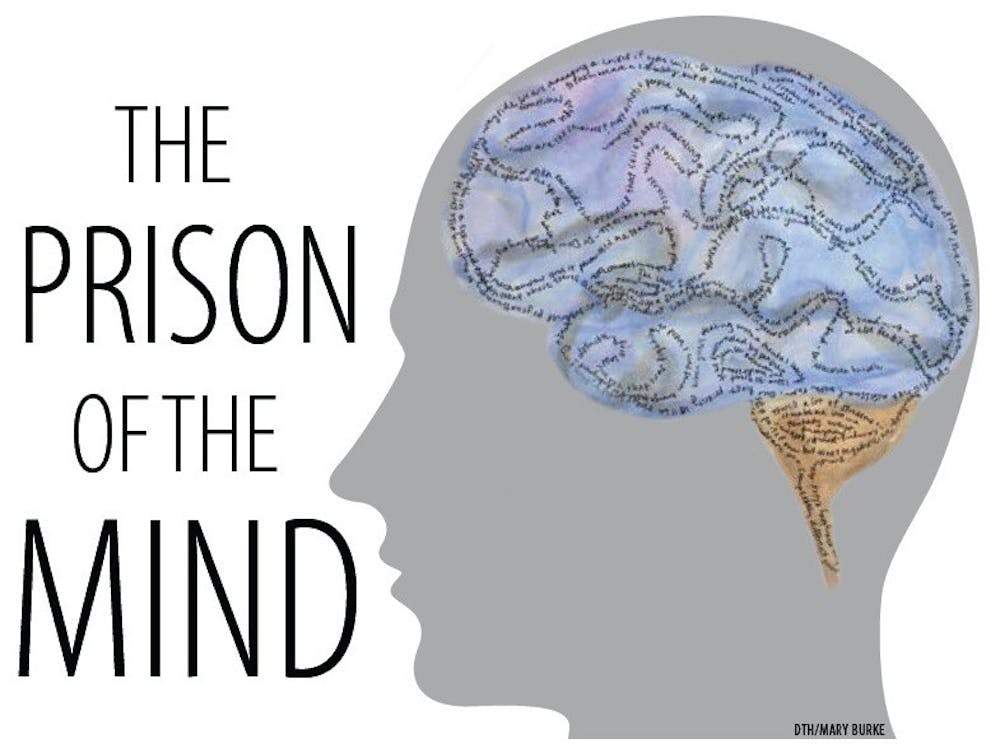S. said UNC’s counseling and psychological services, or CAPS, often made her feel like a ticking time bomb.
“They have a good network, but you have to understand that to them, we are a liability,” she said. “But that doesn’t mean they don’t care about (mental illness).”
According to the 2013 National Survey of College Counseling Centers, an average of 1,800 students sought individual or group counseling for mental health related issues at universities with more than 15,000 students.
“A greater number of students tend to be seeking help and those that are seeking help are even more troubled or severe than they used to be,” said Dr. Dan Jones, past president of the Association for University and College Counseling Center Directors.
The demand of students needing psychiatric help often exceeds the resources college mental health services have available, he said.
Jennifer Rothman, young families program director at the state branch of National Alliance on Mental Illness, said mental illness is aggravated at universities because many students are living away from home for the first time.
Jones said colleges offer counseling and psychological services centers with licensed mental health professionals. Treatment is either free or at a reduced cost, he said.
Dr. Maureen Windle, associate director and clinical director at CAPS, said students can walk in any day of the week. CAPS offers brief counseling, support groups and meetings with psychiatrists who can prescribe medicine.
She said if additional psychotherapy is needed, a student might be referred into the community for ongoing therapy.
But K., a former UNC student with severe anxiety who also asked to remain anonymous for privacy reasons, said she felt like CAPS was only trying to find a solution for her elsewhere.
Windle said that while she can’t speak to anyone else at the University viewing students with mental illnesses as a liability, she doesn’t agree.
“Nothing delights me more than working with a student who’s had some struggle and is able to push past that struggle and graduate from Carolina,” she said.
To get the day's news and headlines in your inbox each morning, sign up for our email newsletters.
Windle said about 75 percent of students seen by CAPS receive brief psychotherapy while the rest are referred out into the community.
“We cannot provide ongoing services to every student on campus,” she said.
But if students come to the center displaying any kind of risk, like suicidal thoughts or self-harm, the center performs a specific risk assessment and, if necessary, admits them to the hospital, she said.
“Our first priority will be their safety,” Windle said. “Thinking about brief psychotherapy or anything else sort of falls to the wayside. We’re managing a crisis, if you will.”
Viviana Bonilla-Lopez, co-founder of UNC student group Rethink: Psychiatric Illness, which works to eliminate the stigma around mental illness, said college campuses should create a safe environment for students with mental illness.
“We have worked with CAPS before and there are a lot of people who truly care about students, who truly care about their jobs,” she said.
Before S. contemplated suicide the first time, she went to CAPS because she felt like something was off — like there were two different sides of her.
“I was very smiley, but I wouldn’t let anyone know that I was a cutter,” she said. “Or whenever I was overwhelmed, I tried to play it off like it was a joke.”
S. met with a new therapist at CAPS, but she says the counselor pushed her too hard.
“It plummeted me to a very dark place where I almost took some drastic measures,” she said.
With only two weeks left of the spring 2013 semester, S. said she almost jumped off of Rams Head parking deck before stepping down from the ledge.
She said her parents had to convince doctors at UNC Hospitals to let her stay and finish out the semester.
“I definitely felt I was fighting to prove I was sane enough to stay,” she said.
But she said ongoing mental health issues in the summer convinced her to withdraw for the fall 2013 semester.
S. said the reapplication process to return this semester was easy. She said she had to fill out a separate application that only took 10 minutes.
But K. is still working to return to UNC. After her initial encounters with CAPS, she left for summer, when she said anxiety became debilitating.
K. said when she returned to school in the fall, she struggled to get out of bed and take herself to class every day.
She continued to receive counseling from CAPS, but she said she felt beyond help.
“I feel like in the way that (CAPS) is set up, it kind of wishes people away,” she said.
When her grades started slipping and her mental health was not improving, K. said she knew it was time to go home.
The free counseling at CAPS had been helpful to her — she said she had to convince her parents to pay for a therapist. But she said the two did not work well together, and she stopped seeing him.
Before she can reapply, K. said she has to find and work with a new therapist who will sign off on her return.
“Whenever I’m in a crowded environment where there’s lots of people, like a social gathering, it feels like waves coming from every direction and I’m drowning but nobody else feels it.”
state@dailytarheel.com



